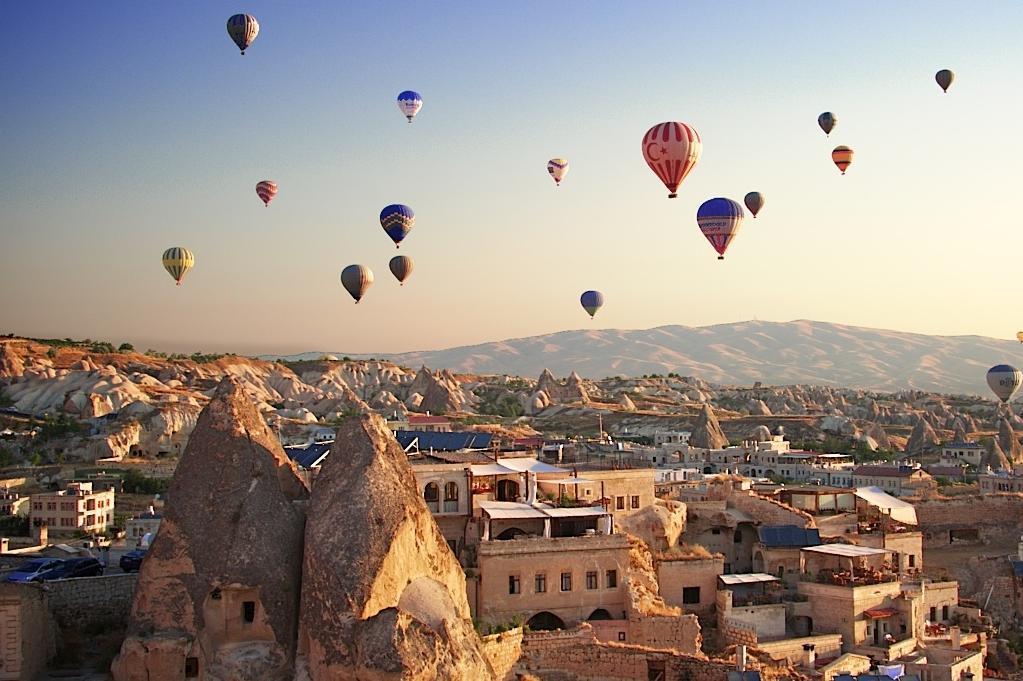
The status of the Göreme Valley in the world-famous Cappadocia region has been changed to “prevent illegal constructions” in the area, a statement issued by the Culture and Tourism Ministry has said.
“Contrary to the news reported to the public, …. illegal constructions that damage the area’s natural character and could not be prevented previously due to the authority chaos, will now be prevented,” said the ministry on Oct. 22.
Göreme Valley, located among the “fairy chimney” rock formations in Cappadocia, lost its national park status as the result of a presidential decree published on the Official Gazette on Oct. 22. The valley in the Central Anatolian province of Nevşehir became a UNESCO World Heritage Site in 1985. A year later, on Oct. 30, 1986, it was declared a national park by the Turkish government.
Following the issuance of the relevant presidential decree on Oct. 22, the Culture and Tourism Ministry released a statement saying various news reports alleging that the Göreme Valley would be opened for construction did not reflect the truth. The ministry statement said the protection of the Cappadocia region under many statuses (such as an archaeological site, a natural park, etc.) led to chaos among the agencies and departments responsible for protecting it. “And this situation led to an increase in the number of illegal constructions and the area to being damaged,” said the statement.
The ministry said an area consisting of 86,000 hectares of land, including the Göreme National Park and the underground cities of Derinkuyu and Kaymaklı, have been declared as the “Cappadocia Area” within the framework of Law No. 7174, which was passed in the parliament earlier this year to better protect the region.
On May 24, the parliament passed a bill titled, “Kapadokya Alan Başkanlığı” (“Cappadocia Area Directorate”), which became law on June 1. The law led to the establishment of a commission named “Cappadocia Area Commission,” which the government said aims to take measures to protect the famous region in a faster and more efficient way.
Cappadocia, famous for its underground cities, canyons, houses carved into rock and volcanic cones called “fairy chimneys,” attracted more than 2 million tourists in 2018.
The area was also a religious center in the early periods of Christianity, serving as a shelter for prayer for Christians in the Roman era.